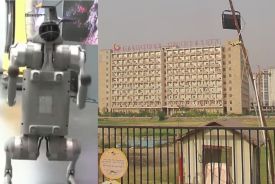Indiana University filed a lawsuit against House Enrolled Act 1337 abortion restrictions with the fear that it could criminalize the university's research on neurological disorders. Scientists at Indiana University's Stark Neurosciences Research Institute are currently studying diseases such as Alzheimer and autism which use aborted fetal tissue from University of Washington's Birth Defects Research Lab.
The law clearly restricts the transfer, receive or selling of fetal tissue and the individual who gets involved in the 'crime' will be imprisoned for six years. The act also bans abortion based on disability, sex or race.
Indiana is the second state to restrict abortions after Governor Mike Pence signed it into law, according to Indy Star. The issue is controversial as it has become a topic for debate nationwide. The Planned Parenthood has also requested to take down the abortion bans and accused the Act 1337 as a violation in free speech and reproductive rights.
The IU research institute claims that it will have catastrophic effects on neurological science research in the university and also on the scientists who conduct the study. IU lawsuit describes the impact of the prohibitions in seven-page paper, including the names of individual working on Alzheimer researches such as Dr. Debomoy Lahiri. The psychiatrist is currently researching on multiple projects on the disease, one of which is federally sponsored.
The professor, according to the IU lawsuit, could be facing felony risk for his research even when he decides to stop the work in the lab. The university also argues that it would affect dramatically on the research centers especially when they have to refund the grants obtained from federal funding.
Dr. David Prentice from Charlotte Lozier Institute commented on Indiana University abortion lawsuit that it 'does not contain any proof' to use aborted fetus as a scientific research, according to Life News.
© 2026 University Herald, All rights reserved. Do not reproduce without permission.








